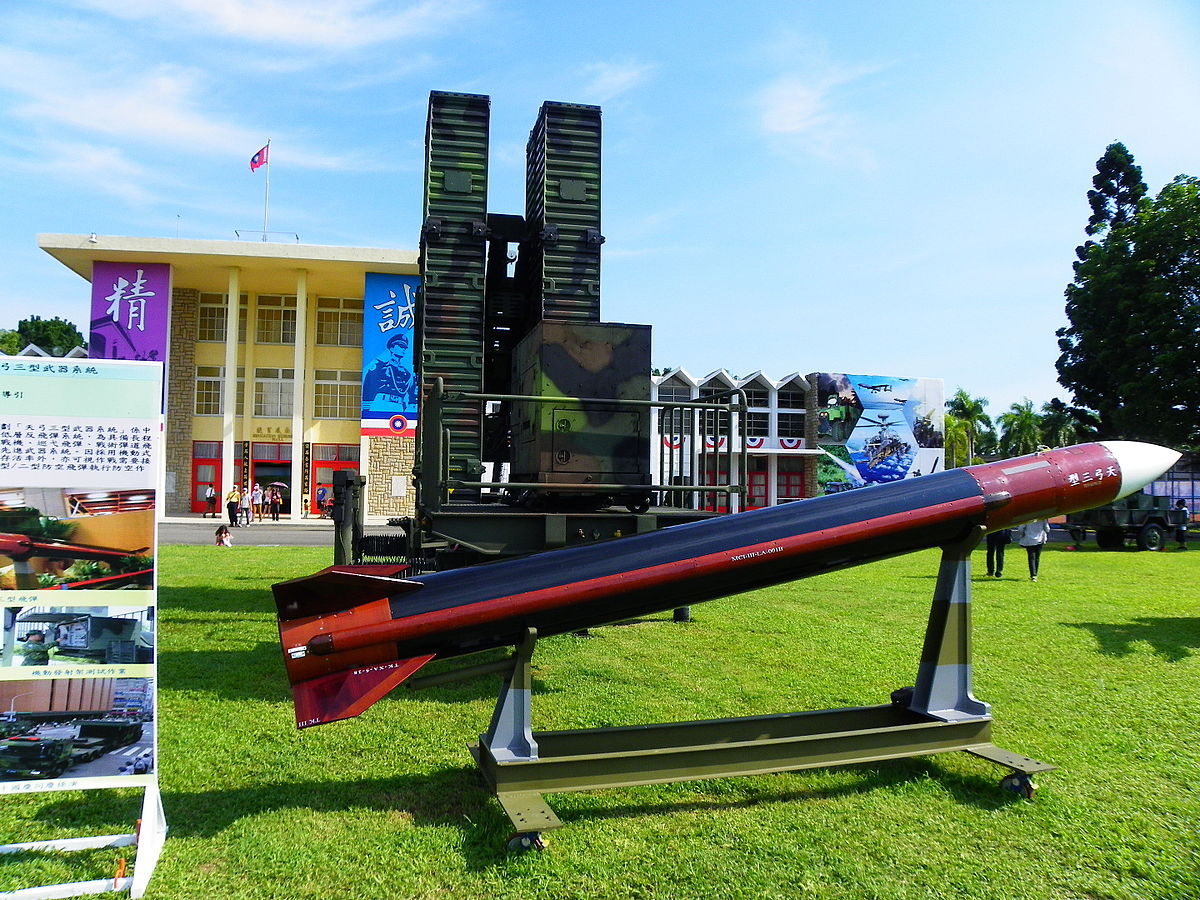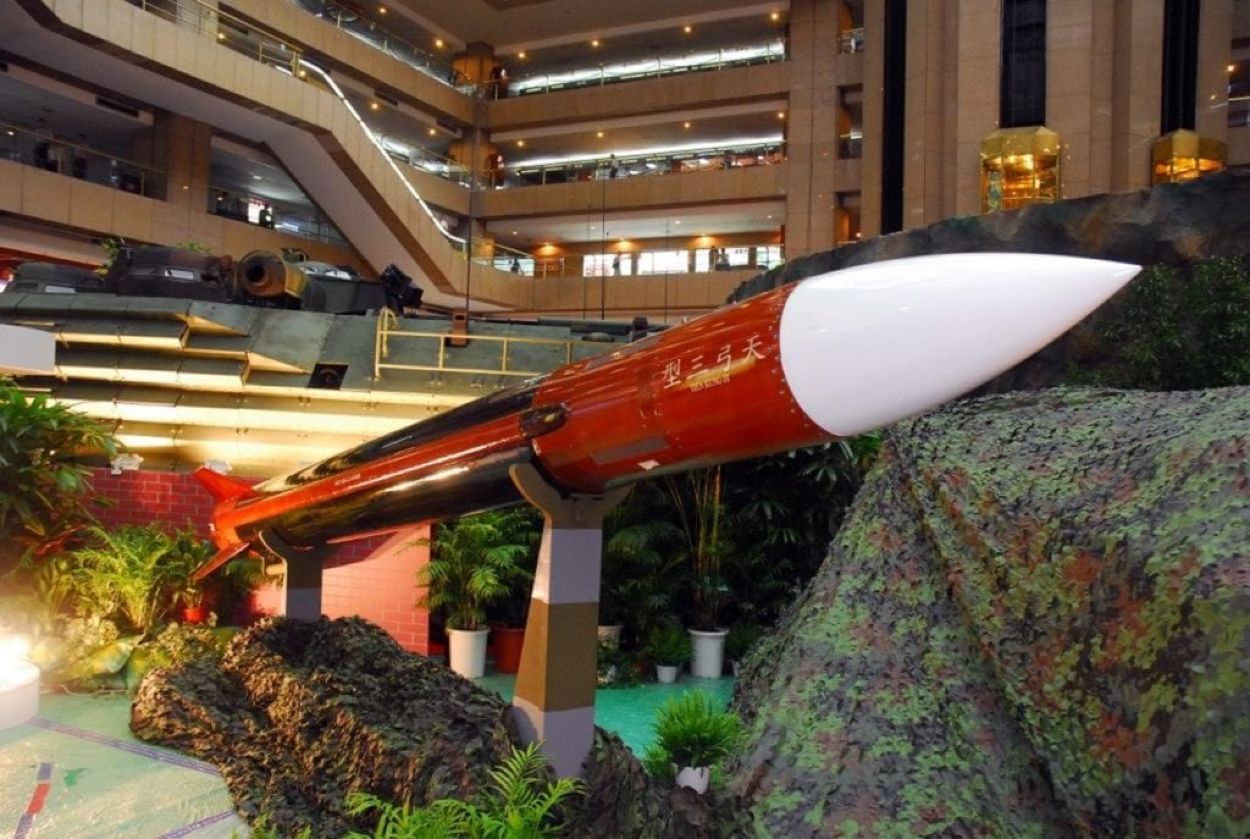Taiwan is inching closer to receiving another indigenously developed advanced surface-to-air missile (SAM) system apart from the two already in its arsenal. The self-governing island expects a massive military clash with the People’s Republic of China (PRC) as Beijing is determined to annex it.
Reports from the self-ruled island said the National Chung-Shan Institute of Science and Technology (NCSIST) tested the Strong Bow SAM, with preparations beginning for mass production. The Ministry of National Defense (MND) made a submission to the legislature to this effect.
The Strong Bow is claimed to be an extended-range version of the homegrown Tien Kung-III (Sky Bow III), with a new seeker and a more efficient rocket motor.
Taiwan’s Current Inventory
The TK-III is a product of the NCSIST and, along with the US-origin Patriot, would be the mainstay of Taiwanese air defense against the People’s Liberation Army Air Force (PLAAF) and People’s Liberation Army Navy (PLAN) aviation.
The Republic of China (ROC, as Taiwan is alternatively known) also recently phased out the MIM-23 Hawk SAM system. Last year, the US offered to sell Taiwan another 100 PAC-3 Missile Segment Enhancement (MSE) variants of the Patriot missile.
New Missiles
According to a report in the Taipei Times, the testing of the missile’s “combat readiness” was completed in February. Preparations have commenced for the mass production and “integration of the missile into the armed forces’ restructuring plan,” the ministry said.
The report also quoted an anonymous source, who claimed that the testing saw the missile intercepting the targets at altitudes of up to 70 kilometers. The official also said there would be a second version of the Strong Bow with a range of up to 100 kilometers.
This is a significant increase compared to the 40-kilometer interception range of the Patriot-III and the TK-III. The indigenously developed NCSIST product TK-III entered service between 2010 and 2011.
“Although the Strong Bow is referred to as an extended-range Sky Bow III missile, the two are different systems,” the official added.
The Strong Bow is equipped with a domestically developed, high-powered microwave power amplifier seeker, which can intercept intercontinental ballistic missiles (ICBM) and other objects at much greater altitudes than the US-made Patriot missile, according to officials quoted in the report.

The missile’s front portion (nose) is made of a cone cover; it has a more efficient propulsion system, and a new type of composite material for the fuselage, all of which improve the Sky Bow III’s performance, the source said.
The Chungshan Institute had been testing the Strong Bow at a missile base in Pingtung County’s Jiupengwan Bay in the island’s south. It is believed that the same location might be testing a longer-range version of the Hsiung Feng II-E (Brave Wind) anti-ship missile (ASM).
Another Taiwanese military official said that part of those tests included simulated intercepts of a ballistic missile, which was first successfully fired at the site on August 18 last year.
The ministry said it is bolstering its overall missile defense network to provide an improved defensive advantage against enemy threats.
It can safely be assumed that the new missiles might be used against China’s high-altitude BZK-005 reconnaissance and surveillance unmanned aerial vehicles (UAV) or TB-001 strike drones.

The Predecessor Tien Kung-III SAM
The TK-III comprises surface-to-air missile, canister, and mobile fire control units, including phased array radar, communication relay, engagement control station, launcher, and power plant equipment.
It has an active radar guidance system combined with inertial midcourse guidance. A microwave seeker in the nose provides high-accuracy navigation information.
Meanwhile, the US has offered to sell up to 100 of its PAC-3 Missile Segment Enhancement (MSE) variant and related equipment to Taiwan.
The proposal was made under the provisions of a 2010 sale and is worth around US$2.81 billion, according to a State Department notice reported by Bloomberg News.
The sale would include M903 Launcher modification kits, training missile rounds, and software upgrades to accommodate the new missiles.
The advanced Patriot missiles will augment Taiwan’s existing stockpile “to improve its missile defense capability, defend its territorial integrity, and deter threats to regional stability,” the notice said.
- The author can be reached at satamp@gmail.com
- Follow EurAsian Times on Google News




